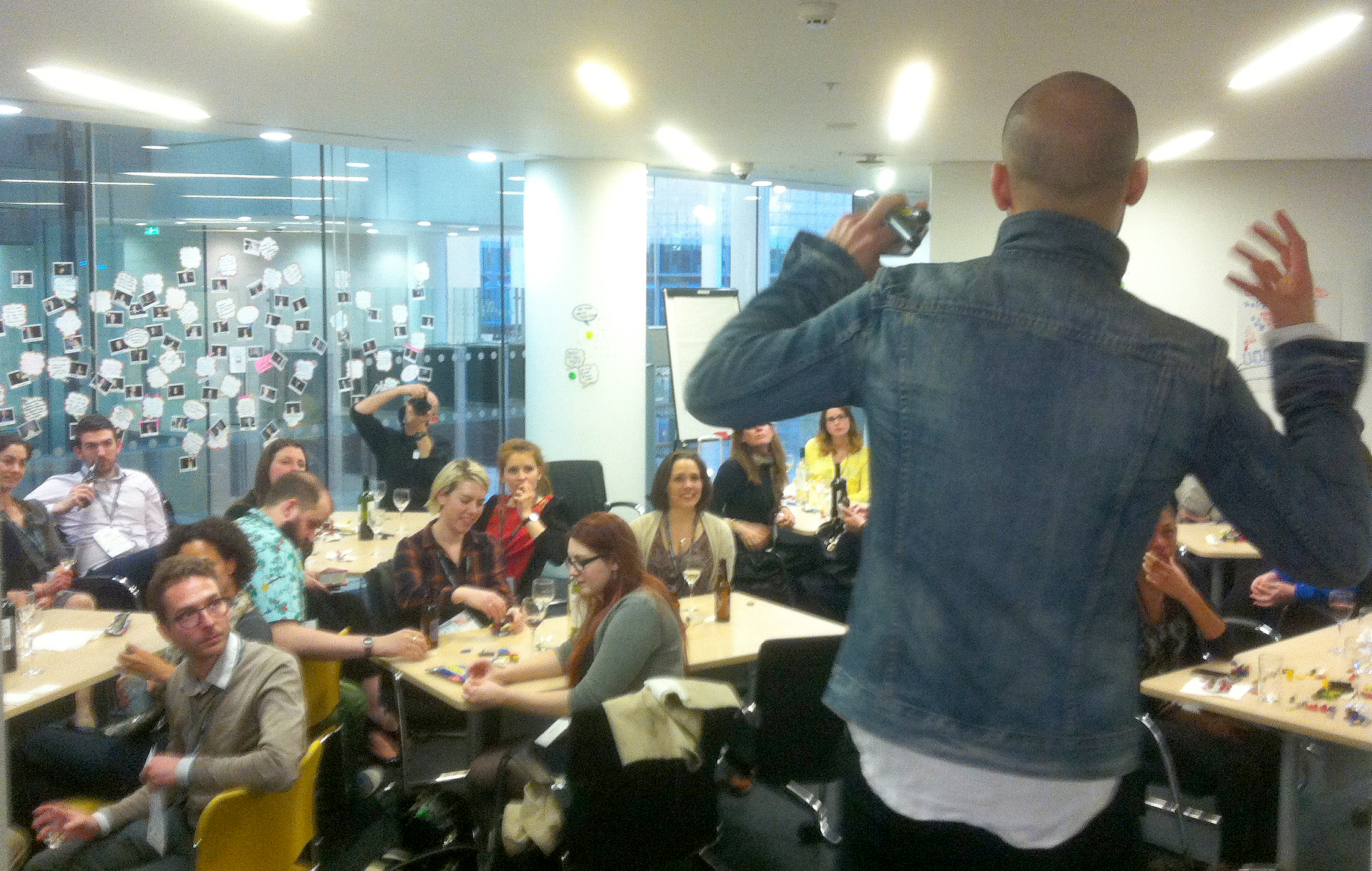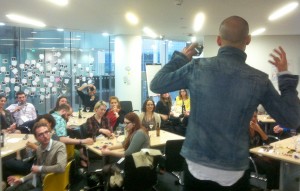New Generation Leadership is Responsive, Dispruptive and Inclusive. Are you In?

There is definitely change in the air…..
The traditional leadership model where leaders command and control an organisation from a protected ivory tower is slowly giving way to a more inclusive model that senses change or challenge and responds in a way that works for everyone, not just the leaders and shareholders.
In a forest, there is no master tree that plans and dictates change when rain fails to fall or when the spring comes early. The whole ecosystem reacts creatively, in the moment.”
Frederic Laloux – Reinventing Organisations
The emerging leadership model is more inclusive, more experimental, more disruptive and less predictable; moving away from ‘the same old comfortable patterns’ while creating a new norm. Then the cycle begins again… and again.
Earlier this week I attended the 2nd annual event hosted by Responsive.Org that was established to champion this new way of working.
Responsive Organizations are built to learn and respond rapidly through the open flow of information; encouraging experimentation and learning on rapid cycles; and organizing as a network of employees, customers, and partners motivated by shared purpose
 While the agenda this year was very similar to last, there was a palpable change in energy this time. In 2014 attendees were curious and very positive about possibilities. This year the whole event seemed energised because we were presented with evidence that this is actually happening. Some organisations are becoming more responsive and seeing the clear benefits. A number of attendees spoke about working in or with organisations that are embracing change and experimenting with a new style of leadership. Amongst the numerous workshops and discussions I attended 3 themes stood out for me.
While the agenda this year was very similar to last, there was a palpable change in energy this time. In 2014 attendees were curious and very positive about possibilities. This year the whole event seemed energised because we were presented with evidence that this is actually happening. Some organisations are becoming more responsive and seeing the clear benefits. A number of attendees spoke about working in or with organisations that are embracing change and experimenting with a new style of leadership. Amongst the numerous workshops and discussions I attended 3 themes stood out for me.
- Instead of seeing leadership as being top-down or bottom-up an inclusive pattern is emerging where the organisational culture gives everyone value and a voice. Communication throughout the company is open and honest and moves in all directions so that listening to opinion is as important as broadcasting instructions. Restrictive and protective middle management tiers are replaced by self-managed groups that are instigated by anyone who has good idea.
- The term ‘disruption’ is overused in management and leadership language but in this case I believe that responsive leadership needs to be disruptive. The dictionary meaning of disruption is “disturbance which interrupts an event, activity, or process.” The old pattern (activity or process) of command and control leadership needs to be interrupted in order for it to change. We are in a very fast-moving and unpredictable world where keeping our heads down and doing what we’ve always done no longer works. We need to be brave, sense when change is needed and make difficult decisions in order to create new ways. We need to be disruptive.
The results of a recent Brand Discovery session lead to my client recognising that their brand essence is a company of determined, passionate, goal-oriented fixers who are supportive, focused and direct. Their ‘why’ is that they believe that positive change is driven by making difficult decisions and creating a new norm. This is a young company, and I would say a responsive company that recognises disruption as an essential attribute for successful development and growth
- Inclusion, or taking a ‘holistic’ approach to business is essential in this new world. We have a responsibility to consider our people and the planet as well as profit. We need to discover our true brand essence so that we understand what kind of a difference we are making. We need to make sure that all our stakeholders know us for who we really are and why we do what we do. If employees and colleagues ‘buy in’ to our ethos and reason for being while feeling valued and heard, they are far more likely to put 100% of themselves into the company – and want to stay with the company longer.
And what about the planet? In the past 50 years, the world’s demand for natural resources has doubled. If we continue to use resources and general waste at the current rate, by 2030 we will need the equivalent of two planets.
What are we, as individual organisations doing to make sure that our children and children’s children have a habitable planet to live on?
The biggest take-away from the day was personal. If Frederic Laloux is right in saying that the new generation companies are soulful organisations that practice distributed leadership, with purpose as their primary motivator, then the work I am doing helping organisations to discover and capture their brand essence – the who and the Why – sits right at the heart of their success.
What can you do today to make your company more responsive, disruptive and inclusive?

Leave a Reply